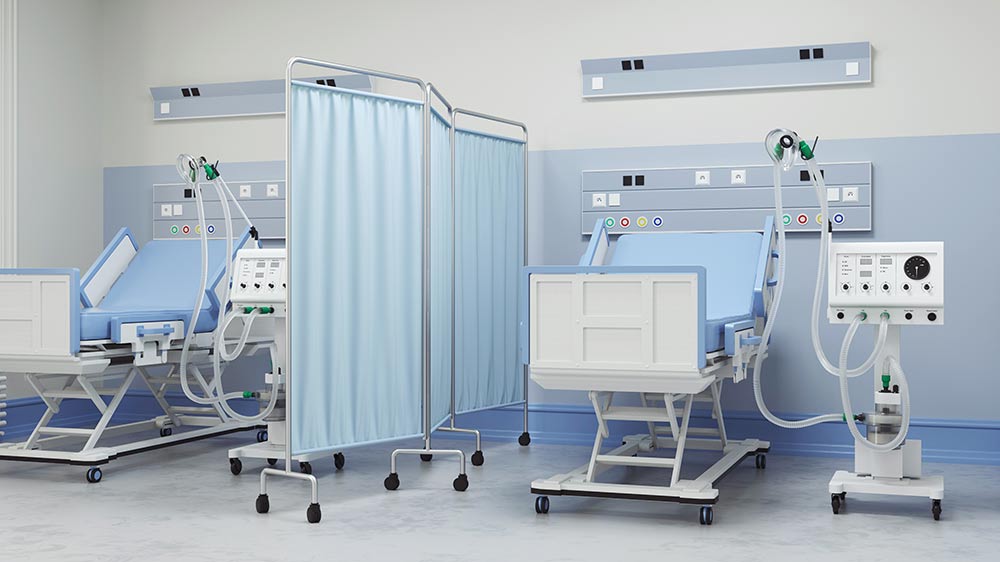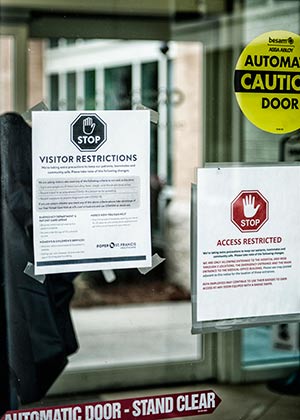
In many ways, the COVID-19 situation in hotspots around the world has been reminiscent of a fictional novel or a tale from centuries before modern medicine. A pandemic spreads across the world, the global economy comes to a screeching halt, people are confined to their homes and hospitals serve as the frontlines while doctors, nurses and staff put themselves in harm’s way, tirelessly struggling to manage the unfathomable influx of thousands fighting for their lives. Some medical professionals contract the virus and are forced to step back for weeks before they can return, straining the availability of medical professionals. Capacities are overloaded, appropriate supplies have been drained and horrific chaos is all that can aptly describe the scene. It seems like something you’d read in a book, but it’s real and it’s happening in modern times in places we love: Italy, Spain, New York City and more.
South Carolina hospitals have, so far, dodged the proverbial bullet of becoming one of those overwhelmed hotspots. While thousands in the state have tested positive and many have succumbed to the virus as of press time, the South Carolina Hospital Association (SCHA) has been carefully preparing state hospitals to be our strongest line of defense against COVID-19, should our situation worsen.
 Preventative measures, such as changing visiting hours, protecting staff and preparing for a potential increase in patients, are just some of the ways SCHA and its facilities are staying ahead of the curve.
Preventative measures, such as changing visiting hours, protecting staff and preparing for a potential increase in patients, are just some of the ways SCHA and its facilities are staying ahead of the curve.
Though specific visitation rules vary by facility — largely based on each hospital’s supply of personal protective equipment — many hospitals are not allowing visitors for any patients except in end-of-life situations. Different areas of a hospital facility, for example inpatients versus the emergency department, may have customized policies. Vendors and contractors are also limited to entering only for necessary services. For the small percentage of visitors, vendors and contractors who are permitted inside, they must be screened before entering. Those visiting patients with suspected or confirmed COVID-19 must wear personal protective equipment (PPE) that is consistent with clinical staff.
There has been widespread concern about the availability of PPE in hospitals throughout the country. The SCHA reported that supplies of masks, gloves, gowns and other protective equipment for state hospitals are adequate for a normal volume of patients, but it has requested that all hospital and health systems consider ways to preserve access to them. Conservation measures could include limiting non-critical personnel from isolation areas, thus saving supplies, considering reuse of N95 respirator masks in keeping with the guidelines from the Center for Disease Control or even simply taking inventory of all a facility’s available PPE. In a state of emergency, certain out-of-date supplies are considered useable.
In terms of other necessary supplies like face shields, gowns, masks, hand sanitizer and testing supplies, SCHA has partnered with other organizations to compile potential resources via an online database.
Because hospital bed capacity would be an integral component to treating a large increase in patients if there were a severe outbreak in our area, DHEC has requested that hospitals report their bed statuses every 24 hours through the Bed Availability and Report Tool, aka BART. Hospitals must report their available beds, staffed beds and other related information.
The Medical Surge Planning Team, comprised of representatives from SCHA, DHEC and the National Guard, has a plan to add another 3,000 beds — for a total of around 9,000 — if necessary. There are 18 facilities around the state, including coliseums, hotels and closed hospitals, that are at the ready to become alternate care sites if the need arises.
Another key element that has been considered is available staffing. Independent and private physician staff who have been furloughed during the pandemic may be recruited by SCHA if additional short-term support is needed. Recent retirees or those with inactive licenses who would like to help are also in consideration.
As the saying goes, “the only thing constant in life is change,” and this couldn’t be truer than during the current pandemic. The normalcy we had grown accustomed to has eroded, and in recent weeks, rules change every few weeks by country, by state and by county. What we know about the virus also seems to change and grow constantly.
As East Cooper Medical Center, one of SCHA’s associated hospitals, explained, “As guidelines change, we adapt our approach to align with current CDC guidelines and infection control practices. The landscape of health care is constantly changing, and we modify our policies to incorporate new practices as they emerge, while always keeping the collective health of the community, including employees, at the forefront of all we do.”
Though our state is lucky to have, so far, recorded relatively manageable levels of COVID-19, the South Carolina Hospital Association has prioritized preparedness, keeping the health and safety of its staff and the entire community at the forefront.
By Anne Shuler Toole

Leave a Reply